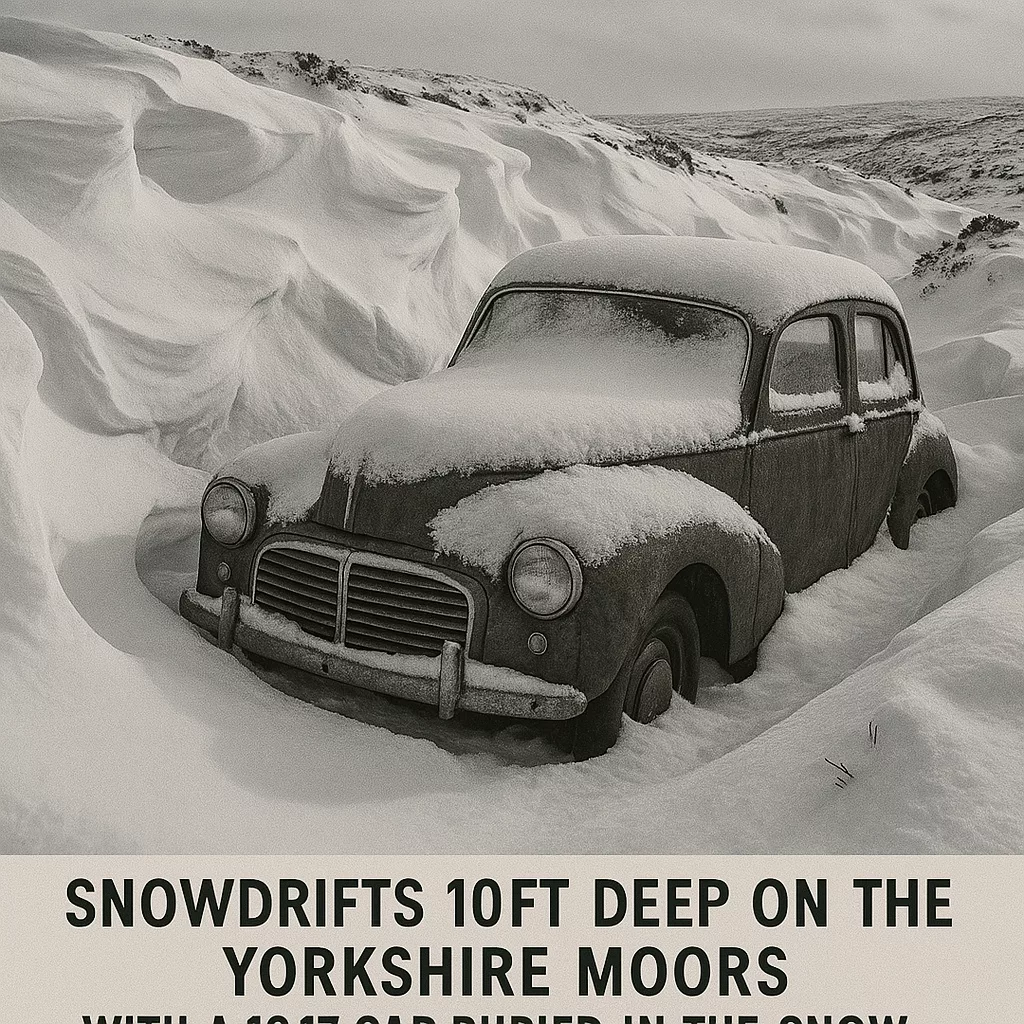The harsh realities of the brutal winter of 1946-47 are chronicled here in a writeup of The Time Traveller clipped from the Northern Echo some time in the 1980s
The churches worry about war-devastated Germany, but most people say that Britain has enough to do in feeding herself. Rationing is worse than in the war – dwindling allowances of basic foods, “points” for others, coupons for clothes and since last July even bread, which has not been rationed before.
We are exhorted to export more, or expect still lower living standards and industry is short of coal. Mr. Atlee’s Labour Government is sadly handicapped in it’s attempt to inaugurate a new era of social welfare and industrial change, including nationalisation of industries like mining, which has been run by a National Coal Board since New Year’s Day.
The Weather looks ominous indeed
Now even the weather looks ominous. Indeed, the last twelve months has been the wettest for a generation, a wintry snap came before Christmas, and the New Year has been very wet; but a very cold easterly air current now covers the country. The first snow fell in midweek – accompanying a forecast of “Bread ration may be cut, less bacon and home meat, beer supplies to be halved immediately” – and today has fallen more generally. Tonight a wintry weekend is setting in.
FA Cup ties were played today in icy winds, and road accidents in one small area of County Durham have included a bus turning over near Bishop Auckland, injuring two of 30 passengers, and a Richmond couple injured when their car collided with a lorry near Bildershaw Bank; and tonight a car and lorry have collided on The Great North Road between Ferryhill and Chilton.
A boy of six and his eight year old sister have drowned in sliding on a frozen pond in Shropshire, and two boys aged eight and fourteen in a Berkshire pond.
Ten feet deep on the North York Moors
By tomorrow night the snow drifts will be six to ten feet deep on the North Yorkshire Moors, along with heavy snow in many other parts of the country, and gales along the East Coast and English Channel, with the wildest day for years in the Straits of Dover, snow on Hastings beach and the heaviest fall for three years at Falmouth in Cornwall.
Despite what it portends, however by Monday the weather will not yet displace such news as the breakdown of Anglo-Egyptian treaty negotiations, and the kidnapping of a judge and an Army officer by jewish terrorists in Palestine. Today, the gangster Al Capone has died in Florida, to which he retired in 1939 after his release from eight years prison for income tax evasion. This is also a weekend of air accidents.
Apart from a Hong Kong report of £1m in gold scattered down a hillside, with a Dakota’s crew of four dead, a Dakota crashed today on take off at Croydon, killing half of it’s two dozen occupants, and a Mosquito came down in a field near Kirkby Fleetham Hall, killing two pilots from RAF Leeming; and tomorrow a Dutch Dakota is to crash after take off in Denmark, killing six crew and sixteen passengers including the eldest son of the Crown Prince of Sweden and film star and opera singer Grace Moore.
A Literary star is to rise in The North East next Thursday with publication of a book of short stories by the young Ferryhill miner Sid Chaplin, who has already received the Atlantic Award for Literature.
The whole country paralysed
By then, the whole country will be paralysed. On Wednesday, there will be 14ft drifts in Essex and 16 degrees of frost that night in London, after gas and electricity cuts during the day, with most of it’s commuters snowbound at home for days to come.
The snow this weekend heralds a nightmare of continuous snow and frost, lack of coal made worse by frozen roads and railways, and colliers stormbound in the Tyne, power stations closing down and, by the end of the week after next, two million people out of work.
Surviving wartime regulations allow the government to fobid electric fires between set hours of morning and afternoon, to ban greyhound racing and suspend television and radio’s Thid Programme, and cut London transport. In the coldest February for over half a century, in snow, in worn clothes and leaking footwear, people are to find themselves trying to revive “wartime spirit” in a “Fuel Dunkirk”, collecting gasworks coke in prams and sacks and queueing for candles. A failure of the national grid and a total blackout will be barely averted in a fortnight’s time.
Slight improvement, then more snow in March
By mid-February, there will be a slight improvement but after a slight thaw and a fog blanket, snow is to return as March comes in, renewing the nightmare. Much of the land will be under an ice cap of snow old and new – a compacted six feet and more in Upper Teesdale and elsewhere – when milder air begins to creep in from the south west.
As the snow slowly melts, the soil remains icebound, vast lakes spread; and a gale on March 16th – ironically the first day of British Summer Time by the clocks – will precipitate a flooding disaster, while Scotland and Northern England are still an Arctic wilderness, York will see it’s worst flood since 1831.
For nearly eight weeks, snow is to fall somewhere every day, with most of the country snow-covered after this weekend. As April arrives with Easter, there will again be blizzards in the North Midlands and snowploughs out in the Peak District. Some sodden land will not re-emerge until May or June. After that, a hot summer is to bring droughts.

